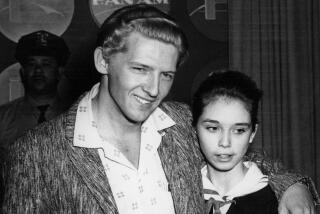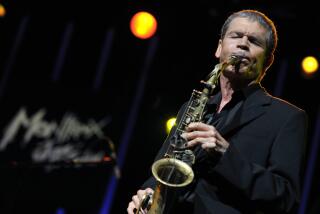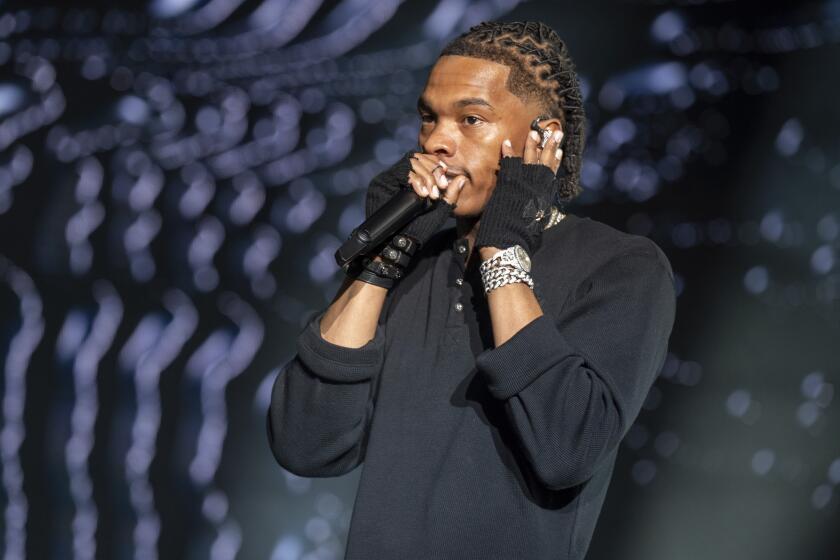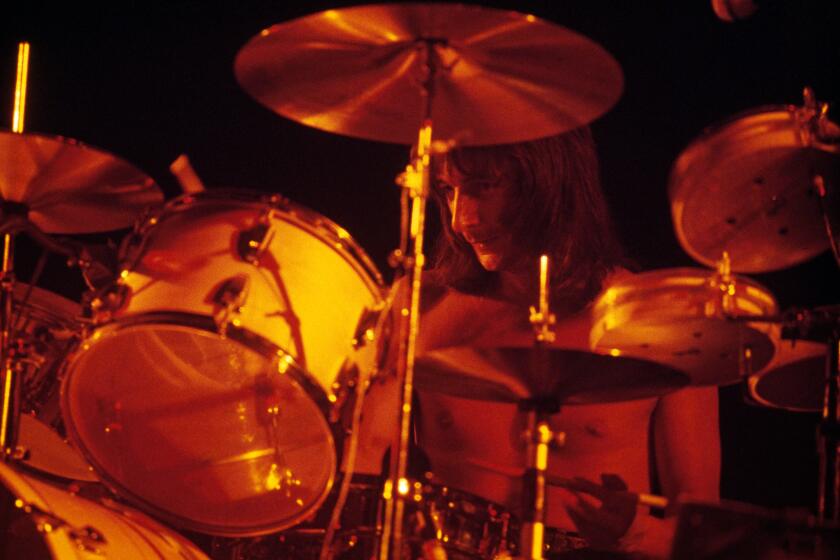Vocalist and Pianist Break the Ice to Compatibility
A successful marriage between a singer and his accompanist is nearly as rare as a couple that’s made it to their 50th wedding anniversary. Still, the courting can make for a lot of fun.
So if the earth didn’t exactly move Sunday at Spaghettini when vocalist Maurice Davis was joined by pianist Bill Cunliffe, at least there were some sparks. It was the first time the veteran saloon singer and the busy keyboardist had teamed, and their first set sometimes had the uncomfortable feel of a blind date.
Not that both men aren’t expert in their craft.
Davis has been singing since the ‘60s, first in Portland, later in San Francisco, where he was the house vocalist at the Half-Note (the same club that spawned Al Jarreau) and most recently on the club and lounge circuit in L.A.
Cunliffe, who won the first Thelonious Monk International Piano competition some six years ago, backs an array of Southern California-based singers, as well as leading his own electric and acoustic jazz bands.
But getting their styles to mesh took some time. Davis has a swinging, straight-ahead delivery that needs little embellishment. Cunliffe’s approach is densely detailed. When the two finally found common ground, it made for a very cozy fit.
Their lack of familiarity with each other didn’t, however, result in a display of excessive caution.
Davis opened by calling for “On a Clear Day,” and Cunliffe responded with a dancing, boogie-woogie tinged backdrop. Then, before the tune was finished, the singer indicated a change, and the two moved into “More.” Spontaneously creating a medley like this on the first number took some nerve. Or maybe Davis just wanted to put his accomplice through the paces.
Whatever the reason, the two songs fell together quite nicely. From there, the pair went on to Antonio Carlos Jobim’s “Quiet Nights,” a mid-tempo bossa nova that Davis’ husky tones turned into an exercise in intimacy.
As the program went on, it was apparent that the singer’s greatest strength, like that other respected saloon crooner, Frank Sinatra, is his phrasing.
The words of a lyric fall just so in his delivery, which emphasizes rhythm and utilizes open space to build dynamic tension. His voice has a bit of deep, throaty purr reminiscent of Lou Rawls that’s especially effective on ballads, and his ability to swing kept the program of standards sailing right along.
*
Cunliffe seemed unable to match the vocalist’s relaxed lead, constructing detailed progressions rather than letting the song flow. He also seemed locked into a back-and-forth, stride style pacing, rather than the rhythmic swing that Davis tried to initiate with finger snaps.
The reason for this may have been due to the off-key Spaghettini piano, whose pitch quirks gave his playing a honky-tonk feel (the management would be wise to invest in a piano tuner).
On the other hand, Cunliffe’s improvisations were marvels, twisting here and there, constructed on surprising combinations of notes and suggestive blues touches. His solo during “Summertime” was especially invigorating, with all the steamy airs that the tune carries.
Soon after, the two began to click. Cunliffe gave Davis the space to operate on the touching ballad “Why Did I Choose You?” which the singer dedicated to his wife. The two found a suitable cadence on the more upbeat “All Right With Me” and “I Won’t Cry Anymore.”
By the time they closed the set with “Teach Me Tonight,” the two had learned a lot from each other. When they next work together, no doubt they can begin a serious relationship--now that they’re finished with the preliminaries.
More to Read
The biggest entertainment stories
Get our big stories about Hollywood, film, television, music, arts, culture and more right in your inbox as soon as they publish.
You may occasionally receive promotional content from the Los Angeles Times.






